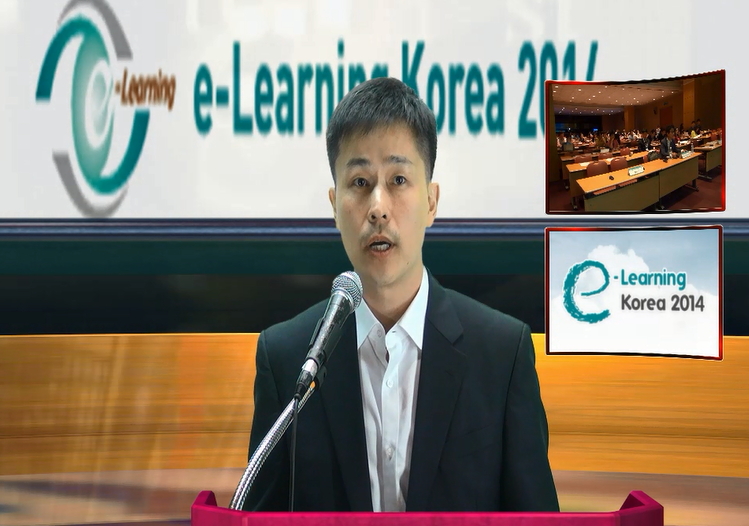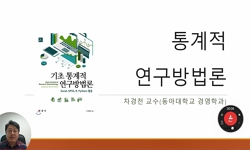This paper interrogates the theoretical foundations of Cross-Cultural Studies across the Social Sciences through an examination of the field ELT. Through an examination of ELT’s major theoretical and pedagogical moves, this paper illustrates how ELT...
http://chineseinput.net/에서 pinyin(병음)방식으로 중국어를 변환할 수 있습니다.
변환된 중국어를 복사하여 사용하시면 됩니다.
- 中文 을 입력하시려면 zhongwen을 입력하시고 space를누르시면됩니다.
- 北京 을 입력하시려면 beijing을 입력하시고 space를 누르시면 됩니다.

An Examination of the Theoretical Foundations of Cross-Cultural Studies through an Analysis of Cross-Cultural Research in ELT
한글로보기부가정보
다국어 초록 (Multilingual Abstract)
This paper questions whether studies that do not include these research perspectives properly represent the disparate cultures under study, or are more of a biased, or Orientalized (Said, 1979) interpretation of cultures.
This paper interrogates the theoretical foundations of Cross-Cultural Studies across the Social Sciences through an examination of the field ELT. Through an examination of ELT’s major theoretical and pedagogical moves, this paper illustrates how ELT is by nature a field of cross-Cultural Studies. A closer examination of the history of ELT shows how the colonial genesis of the field indicates a skewed representation of power between native English speaking nations and non-native speaking nations both in terms of academic theories and pedagogies, as well as socio-cultural relations of power. A further analysis of how the field theorizes and represents various relations of power between disparate cultures in ELT literature explicates the dilemma of the objectivity and neutrality of Cross-Cultural research in ELT. In doing so, the analyses included in this paper thus necessarily raises questions regarding the theoretical foundations of research methodologies of Cross-Cultural Studies in terms of the reflexivity of researchers and the problematic of how, or if, relations of power are included in the studies.
This paper questions whether studies that do not include these research perspectives properly represent the disparate cultures under study, or are more of a biased, or Orientalized (Said, 1979) interpretation of cultures.
참고문헌 (Reference)
1 Shin, H., "“Gireogi gajok”: Transnationalism and language learning" University of Toronto 2010
2 National Curriculum Informatin Center, "http://www. kice.re.kr/sub/info.do?m=010102&s=kice"
3 Korean Ministry of Education, "http://ncic.kice.re.kr/english.kri.org.inventoryList.do;jsessionid=68D9406384C558C7FE2635D8C1796B09#.pdf"
4 Hymes, D., "Why the linguist needs the sociologist" 34 (34): 632-647, 1967
5 Canale, M., "Theoretical bases of communicative approaches to second language teaching and testing" 1 (1): 1-47, 1980
6 Johnson, K., "The sociocultural turn and its challenges for second language teacher education" 40 (40): 235-257, 2006
7 Kincheloe, J., "The sign of the burger: McDonald's and the culture of power" Temple University Press 2002
8 Kachru, B., "The other tongue: English across cultures" University of Illinois Press 1992
9 Foucault, M., "The Foucault reader" Random House 1984
10 Brown, H. Douglas, "Teaching by principles: An interactive approach to language pedagogy" Pearson ESL 2007
1 Shin, H., "“Gireogi gajok”: Transnationalism and language learning" University of Toronto 2010
2 National Curriculum Informatin Center, "http://www. kice.re.kr/sub/info.do?m=010102&s=kice"
3 Korean Ministry of Education, "http://ncic.kice.re.kr/english.kri.org.inventoryList.do;jsessionid=68D9406384C558C7FE2635D8C1796B09#.pdf"
4 Hymes, D., "Why the linguist needs the sociologist" 34 (34): 632-647, 1967
5 Canale, M., "Theoretical bases of communicative approaches to second language teaching and testing" 1 (1): 1-47, 1980
6 Johnson, K., "The sociocultural turn and its challenges for second language teacher education" 40 (40): 235-257, 2006
7 Kincheloe, J., "The sign of the burger: McDonald's and the culture of power" Temple University Press 2002
8 Kachru, B., "The other tongue: English across cultures" University of Illinois Press 1992
9 Foucault, M., "The Foucault reader" Random House 1984
10 Brown, H. Douglas, "Teaching by principles: An interactive approach to language pedagogy" Pearson ESL 2007
11 Celce-Murcia, M., "Teaching English as a second or foreign language" Heinle & Heinle 3-12, 2001
12 Norton, B., "Tales out of school: Special issue of TESOL in Context" Cambridge University Press 1-23, 2006
13 Carter, R., "Standard English: the continuing debate" Routledge 149-166, 1999
14 Crowley, T., "Standard English and the politics of language" Palgrave MacMillan 2003
15 Lantolf, J., "Sociocultural theory and the genesis of second language development" Oxford University Press 2006
16 Lantolf, J., "Sociocultural theory and second language learning" Oxford University Press 2000
17 Giddens, A., "Runaway world: How globalization is reshaping our lives" Routledge 2000
18 Canagarajah, S., "Resisting linguistic imperialism in English teaching" Oxford University Press 1999
19 Hall, S., "Representation: Cultural representations and signifying practices" Sage 1997
20 Tollefson J., "Planning language, planning inequality: Language policy in the community" Longman 1991
21 Said, E., "Orientalism" Vintage Books 1979
22 Labov, W., "Linguistics for teachers" McGraw Hill 149-172, 1993
23 Phillipson, R., "Linguistic imperialism" Oxford University Press 1992
24 Phillipson, R., "Lingua franca or lingua frankensteinia? English in European integration and globalization" 27 (27): 250-267, 2008
25 Seargeant, P., "Language, ideology and ‘English within a globalized context’" 27 : 217-232, 2008
26 Norton, B., "Language, identity, and the ownership of English" 31 (31): 409-429, 1997
27 Bourdieu, P., "Language and symbolic power" Harvard University Press 1991
28 Savignon, S., "Interpreting communicative language teaching: Contexts and concerns in teacher education" Yale University Press 2002
29 Canagarajah, S., "Globalization and language teaching" Routledge 134-150, 2002
30 Pennycook, A., "Global Englishes and transcultural flows" Routledge 2007
31 Lather, P., "Getting smart Feminist research and pedagogy within / in the Postmodern" Routledge 1994
32 Pennycook, A., "English and the discourses of colonialism" Routledge 1998
33 Rampton, B., "Displacing the native speaker: Expertise, affiliation and inheritance" 44 (44): 93-101, 1990
34 Kubota, R., "Discursive Construction of the images of U.S. classrooms" 35 (35): 9-38, 2001
35 Sung, K. W., "Critical pedagogy: Where are we now" Peter Lang 163-181, 2007
36 Kincheloe, J., "Critical pedagogy primer" Peter Lang 2004
37 Pennycook, A., "Critical applied linguistics: A critical introduction" Routledge 2001
38 Fairclough, N.L., "Critical and descriptive goals in discourse analysis" 9 : 739-763, 1985
39 Pederson, R., "Critical ELT practices in Asia" Sense Publishers 1-23, 2012
40 Kramsch, C., "Context and culture in language teaching" Oxford University Press 1993
41 Giroux, H., "Border crossings: Cultural workers and the politics of education" Routledge 2005
동일학술지(권/호) 다른 논문
-
조선과 일본에 사는 시인 김시종 - 장편시집 『니이가타』에 표현된 `재일`의 의미
- 경희대학교 글로벌인문학술원
- 김계자 ( Kim Gae-ja )
- 2016
- KCI등재
-
아폴리네르, 폴 엘뤼아르, 이상(LEE Sang) 시의 상형적 시어 비교분석
- 경희대학교 글로벌인문학술원
- 이병수 ( Lee Byung-soo )
- 2016
- KCI등재
-
- 경희대학교 글로벌인문학술원
- 이삼출 ( Lee Sam-chool )
- 2016
- KCI등재
-
- 경희대학교 글로벌인문학술원
- 이선이 ( Lee Sun-yi )
- 2016
- KCI등재
분석정보
인용정보 인용지수 설명보기
학술지 이력
| 연월일 | 이력구분 | 이력상세 | 등재구분 |
|---|---|---|---|
| 2026 | 평가예정 | 재인증평가 신청대상 (재인증) | |
| 2020-01-01 | 평가 | 등재학술지 유지 (재인증) |  |
| 2017-01-01 | 평가 | 등재학술지 유지 (계속평가) |  |
| 2014-01-08 | 학술지명변경 | 외국어명 : 미등록 -> Cross-Cultural Studies |  |
| 2013-01-01 | 평가 | 등재학술지 유지 (등재유지) |  |
| 2010-01-01 | 평가 | 등재학술지 선정 (등재후보2차) |  |
| 2009-01-01 | 평가 | 등재후보 1차 PASS (등재후보1차) |  |
| 2007-01-01 | 평가 | 등재후보학술지 선정 (신규평가) |  |
학술지 인용정보
| 기준연도 | WOS-KCI 통합IF(2년) | KCIF(2년) | KCIF(3년) |
|---|---|---|---|
| 2016 | 0.34 | 0.34 | 0.33 |
| KCIF(4년) | KCIF(5년) | 중심성지수(3년) | 즉시성지수 |
| 0.31 | 0.3 | 0.588 | 0.1 |





 KCI
KCI







